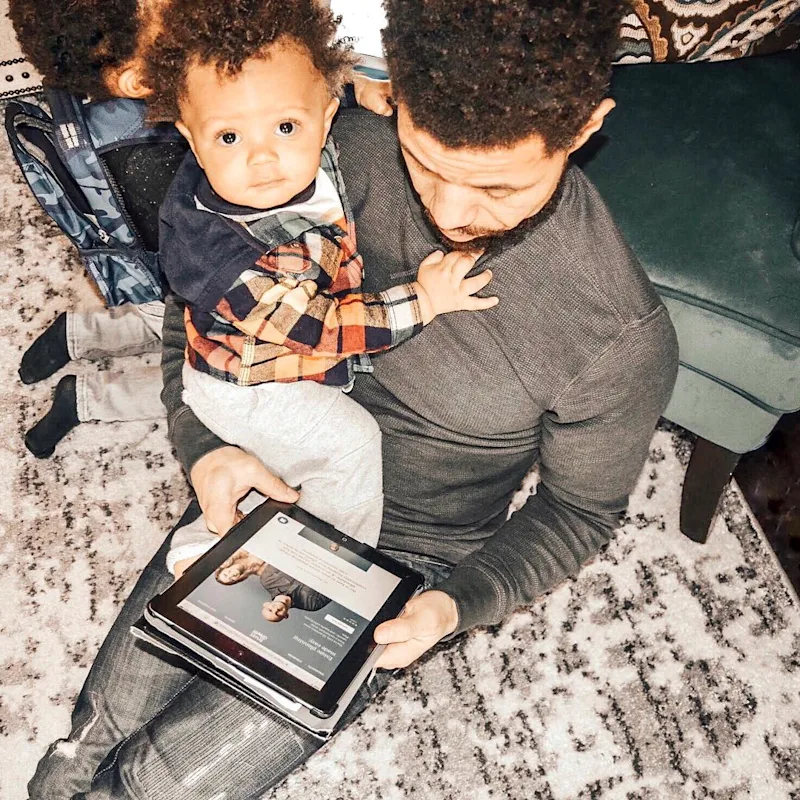
How to Support Your Friend During Grief
Is one of your friends grieving the loss of a loved one? Read on to learn the do’s and don'ts of supporting a friend during grief.

By Staff Writer
Trust & Will
Grief is a process that is inescapable after the loss of a loved one. Each person must go through the stages of grief in their own way, and being the friend of someone who is experiencing grief brings forth its own challenges. As a friend, we want to help in any way that we can, but we may not know exactly how to support our friends who are grieving a loss.
There is a complexity to grief that we cannot fully understand; however, we can do our best to try to help our friends through it. As their friend, you have been their shoulder to lean on for countless events in the past, from letting them vent about their parents' rules, to supporting them through breakups, to encouraging them when challenges come their way. Your friend is going to need this same support during their grieving process.
You may be wondering what you can do to support your friend through their grief. While there is no exact answer for how to support someone, there are a few key things that you will want to do, and things you will want to avoid.
When trying to support your friend,
DO:
Listen
Offer words of support
Stay in touch
DO NOT:
Tell them how to feel
Give empty condolences
Brush off their grief
We at Trust & Will have created this article to give you tips on how to support your friend through their grief.
Ways to Offer Support to Friends who are Grieving
Grief is complex and different for everyone. However, there are a few ways you can support your friend that almost everyone will appreciate. Below, Trust & Will has put together a short list of ways to offer support to your grieving friends.
1. Listen
One of the single most important things you can do for your friends in their time of grief is to offer them a listening ear. It can often be difficult to understand exactly how you may be feeling in the midst of your grief, and giving your friends a chance to talk through their thoughts and feelings can be extremely beneficial. Whether it be a chance for them to vent, to cry, or to share memories of their loved one who has passed, giving your friend the chance to have someone listen can make them feel supported and loved.
2. Offer words of support
You may be wondering, after I have listened to what they have to say, how do I respond? The best thing that you can do is offer them words of support and condolence. It can often feel as though there are no words that you can say to truly help, and this can make you feel useless. While it is true that there is nothing you can say that can take their pain away, it can still be a good reminder to let them know that their friends are there to support them through their grief. This is a time to remind them that what they are going through is painful, but you will always be there to listen when they need it. Take the time to affirm that it is okay for them to express the feelings they are having.
3. Stay in touch
The emotions of grief are raw and painful, and it is natural for us to want to shy away from these feelings. However, this is the time you need to keep in regular contact with your friends. Grief can make you feel separated from others and make it harder to find the energy to reach out. They may feel like a burden for asking you to be with them while they are suffering. During this time, make sure that you are making it a point to reach out to them so that they know you are there and that they matter to you.
Things to Avoid When Supporting Friends Through Grief
While there are many things that we can do to support our friends through their grief, it is just as important to remember to avoid certain actions when reaching out to them. Trust & Will has put together a list of a few things to avoid so you do not have to make these mistakes yourself.
1. DO NOT tell them how to feel
When our friends are grieving, we may feel inclined to share how we felt when we have lost loved ones in the past. We may compare our reactions to grief to theirs, or we may compare their reactions to grief to the typical stages of grief we can read about online. However, this is not beneficial to their individual grieving process. Telling someone how they should feel or comparing their feelings will only make them feel like their experiences are invalidated. This will only frustrate them. Instead, make sure to express that how they are feeling is valid.
2. DO NOT give them empty condolences
After a friend loses someone they love, we want to offer our assistance in some way. We may then make statements such as, “Let me know if there is anything I can do.” While the intention behind this statement may be good, it can often come across as an empty statement. This is because your friend may not even fully know what they need, or how to express it. Instead, you should give concrete examples of how you can help them. It can be beneficial to offer to bring over a home-cooked meal to their house or to offer to sit with them for an evening so that they do not have to be alone. This gives them actual examples of what you can do for them without giving them the pressure of having to ask.
3. DO NOT brush off their grief
After the initial week or so of a friend's loss, we may have the tendency to want to jump back into our regular routine with them. However, the grieving process can be long and have no exact timeline. By going right back into your old favorite activities without checking in on how they are feeling, we may unintentionally make them feel isolated and as if they are expected to have moved on by now. Instead, you should make sure to check in with them on how they are feeling and what they need. It may be that they do want a normal night out, or they may want to stay in with you and talk. Make sure to ask them what they need and do not ignore their grief.
It's important when supporting a grieving friend to prioritize their needs and show them that you're there for them, no matter what.
Grief is a time consuming and painful process. It is hard enough to work through these emotions without added stressors, which is why Trust & Will wants to make your plans for the future easier to make sure that you do not have to add more worries to your plate. With a variety of online resources, such as creating an online Trust and nominating guardians for your children, Trust & Will has you covered with the added ease and convenience of an online website.
Last updated: March 21, 2025



